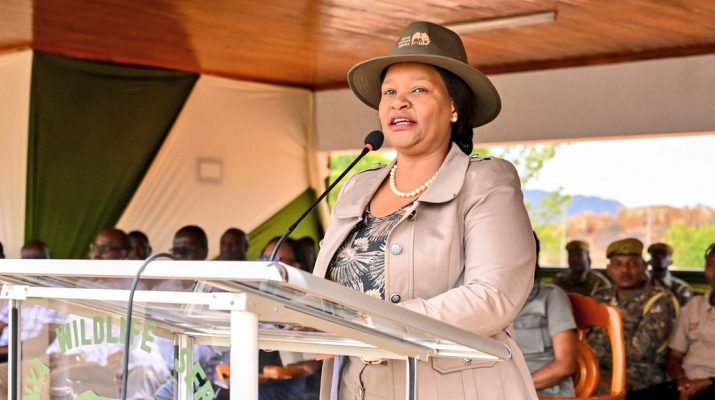By Dorothy Musyoka
In a significant move to strengthen Kenya’s wildlife management and conservation efforts, the government continues to prioritize the training and capacity-building of the country’s future wildlife rangers.
According to the Cabinet Secretary for Wildlife and Tourism Rebecca Miano, this sector contributes to about 75% of Kenya’s tourism earnings and anchors 10% of the national GDP.
“Our wildlife is a treasure of profound proportionate value in Kenya’s Economic, social, and cultural spheres, hence requires skilled management. With 90% of safari tourism driven by our wildlife contributing to about 75% of tourism earnings~A significant 10% of Kenya’s GDP is anchored on our wildlife economy,” stated CS Miano.
Recognizing its significance, the government is committed to ensuring skilled management of this vital resource.
This commitment was reaffirmed as the government emphasized the importance of enhancing the infrastructure, institutions, and capacities of all stakeholders in the wildlife sector.
“We therefore support the infrastructural, institutional and capacity enhancement of all our institutions contributing to the success of this sector,” added Miano.
Speaking during a visit to the Wildlife Training Academy CS Miano urged the ranger recruits to remain dedicated to managing Kenya’s wildlife.
“I encourage our Ranger Recruits who’ve demonstrated sacrifice, commitment, hard work, and desire to acquire the requisite skills and expertise to professionally manage our Wildlife,” stated the CS.
As Kenya continues to position itself as a global leader in wildlife conservation, empowering the next generation of rangers is a critical component of sustainable wildlife management.
However, with proper training and support, these recruits will play an essential role in maintaining the country’s status as a top safari destination and ensuring that wildlife remains a valuable asset for future generations.

